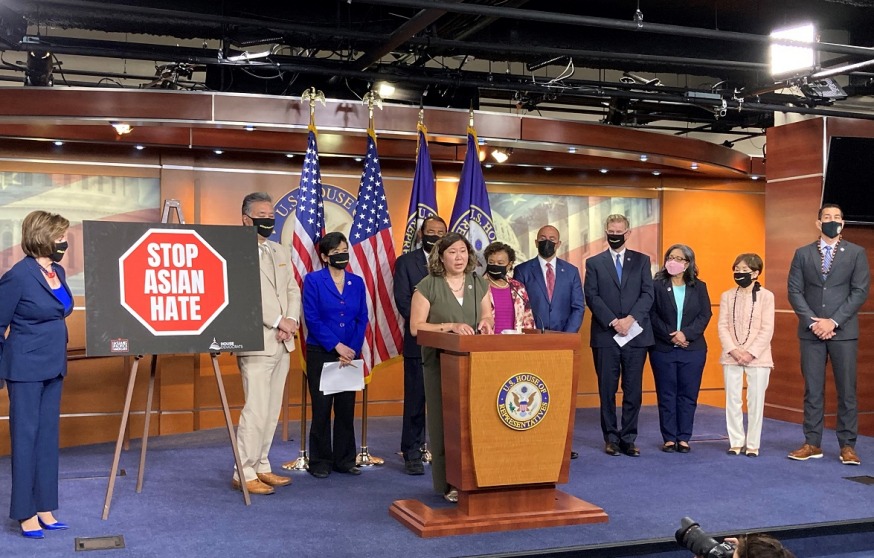
Rep. Grace Meng discusses the passage of her COVID-19 Hate Crimes Act during a press conference on Capitol Hill on Tuesday, May 18 (Photo courtesy of Meng’s office)
May 20, 2021 By Ryan Songalia
A bill aimed at combating anti-Asian hate crimes passed the House of Representatives on Tuesday with overwhelming support and now heads to the president’s desk to be signed into law.
The bill, known as the COVID-19 Hate Crimes Act, would simplify the reporting and review process pertaining to racially motivated crimes amid the pandemic.
Congresswoman Grace Meng, the bill’s chief sponsor in the House of Representatives, says she hopes the passing of the bill brings comfort to Asian Americans who have lived in fear due to the rising number of hate crimes they’ve experienced since the pandemic altered American life in March 2020.
“I commend my colleagues in the House for taking action to combat the despicable and sickening acts, hate and violence against Asian Americans, and for having the Asian American community’s back as we fight this xenophobia and racist attacks,” said Meng, who is in her fifth term representing her Queens district.
The bill calls for the Department of Justice to create a position to expedite the investigation of hate crimes related to the COVID-19 pandemic, encourages reporting of incidents in multiple languages, and directs federal agencies to work with community-based organizations to raise awareness of hate crimes.
The House passed the bill by a 364 to 62 vote. It breezed through the Senate last month by a 94 to 1 vote.
President Joe Biden vowed to “gladly, anxiously sign” the bill in his first address to Congress on April 28.
The number of hate crimes against Asian Americans jumped significantly nationwide in 2020, primarily due to the pandemic. New York City saw 28 reported incidents last year, compared to just 3 in 2019, according to the NYPD.
Meng believes the number of incidents to be even higher.
“The Asian American community is exhausted from being forced to endure this ongoing racism and prejudice. Asian Americans are tired of living in fear, and being frightened about their kids or elderly parents going outside,” Meng said.






